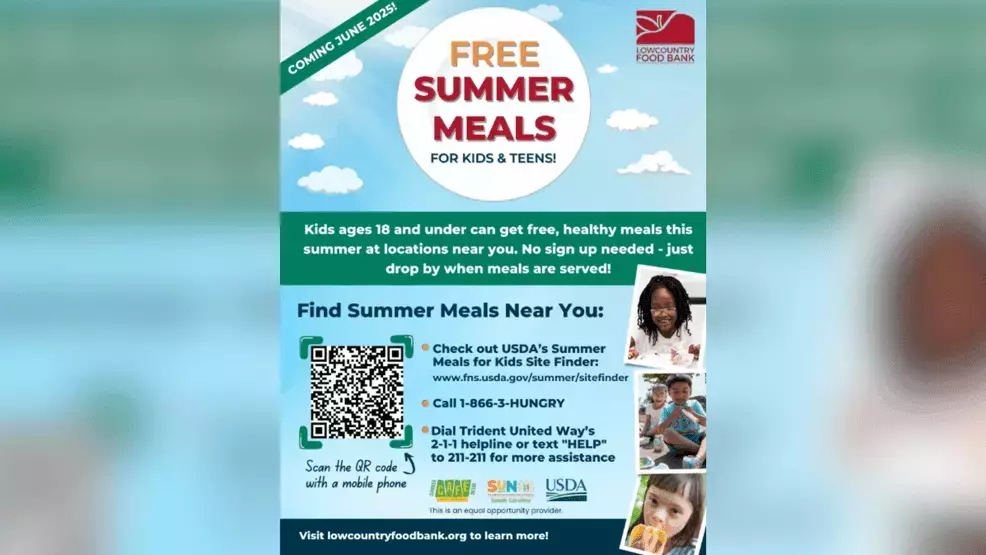
In an effort to address the growing issue of child hunger, the Lowcountry Food Bank has launched a summer feeding program in collaboration with No Kid Hungry for 2025. This initiative ensures that children aged 18 and under receive free meals throughout the summer months. Beginning on June 9 and running for eight weeks, the Summer Break Café aims to bridge service gaps and improve food accessibility in areas most affected by hunger. The program highlights the critical importance of dependable nutrition for families who rely on school meals during the academic year.
Details of the Summer Feeding Program
In the heart of a season filled with warmth and opportunity, the Lowcountry Food Bank is taking significant strides to combat childhood hunger. Through their partnership with No Kid Hungry, they have initiated the Summer Break Café, which will operate at various community locations such as day camps, parks, recreation centers, public libraries, and faith-based organizations. These carefully selected sites aim to reach children who are most in need of nutritional support during the summer break when school meals are unavailable.
The program commenced on June 9 and will span over eight weeks. It targets children aged 18 years and younger, providing them with essential meals at no cost. Marissa Spady, the senior program manager at No Kid Hungry South Carolina, emphasized the vital role of summer meals in supporting families who depend on school meals throughout the year. She expressed enthusiasm about making reliable nutrition accessible across the state, ensuring more children remain healthy during the summer and return to school prepared to learn.
This initiative comes at a time when food insecurity rates in South Carolina's ten coastal counties served by the Lowcountry Food Bank have reached their highest levels in over two decades, affecting more than 13% of the population.
To locate nearby summer meal distribution points, individuals can visit the provided link.
As a journalist covering this story, it is inspiring to witness the dedication of organizations like the Lowcountry Food Bank and No Kid Hungry in addressing such a pressing social issue. Their efforts underscore the importance of community involvement and collaboration in tackling food insecurity. This program not only provides immediate relief but also lays the groundwork for long-term solutions to ensure every child has access to nutritious meals year-round. Such initiatives remind us of the power of collective action in creating healthier, more equitable communities.
